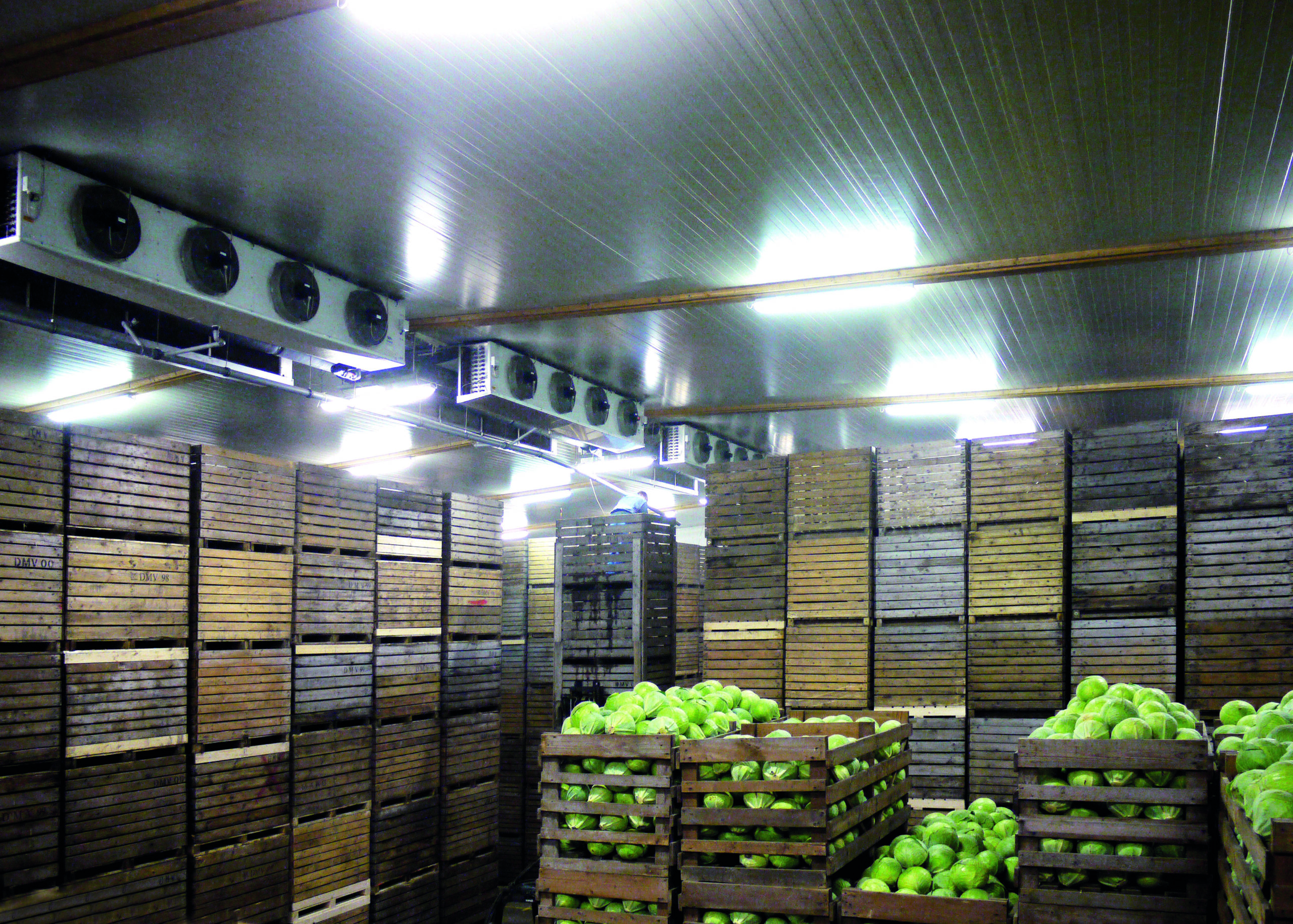Operating a cold storage facility involves several key aspects to ensure that the stored goods remain at the desired temperature and quality. Here’s a general outline of the process:
- Planning and Design:
Facility Layout: Design the layout for optimal airflow and space utilization. Consider temperature zones for different types of products.
Temperature Control: Decide on the temperature range required for different products (e.g., refrigerated, frozen). - Equipment and Systems:
- Cooling Systems: Install reliable refrigeration units, such as compressors, evaporators, and condensers. Regularly maintain these systems to prevent failures.
- Insulation: Use high-quality insulation materials to minimize heat transfer and energy consumption.
- Monitoring Systems: Implement temperature and humidity monitoring systems with alarms for deviations.
- Cooling Systems: Install reliable refrigeration units, such as compressors, evaporators, and condensers. Regularly maintain these systems to prevent failures.
- Inventory Management:
- Storage Procedures: Establish guidelines for stacking, handling, and rotation (FIFO – First In, First Out) to ensure product quality.
- Labeling: Use clear labeling to track products and expiration dates.
- Storage Procedures: Establish guidelines for stacking, handling, and rotation (FIFO – First In, First Out) to ensure product quality.
- Operational Procedures:
- Receiving Goods: Inspect incoming shipments for proper temperature and quality. Store them promptly in the correct temperature zone.
- Handling: Train staff on proper handling techniques to avoid temperature fluctuations and contamination.
- Cleaning: Regularly clean and sanitize storage areas to maintain hygiene and prevent cross-contamination.
- Receiving Goods: Inspect incoming shipments for proper temperature and quality. Store them promptly in the correct temperature zone.
- Safety and Compliance:
- Regulations: Follow local and national regulations regarding food safety, health standards, and environmental controls.
- Emergency Plans: Develop and implement emergency procedures for power outages or equipment failures.
- Regulations: Follow local and national regulations regarding food safety, health standards, and environmental controls.
- Energy Efficiency:
- Optimization: Use energy-efficient equipment and practices to reduce operating costs and environmental impact.
- Monitoring: Track energy usage and look for opportunities to improve efficiency.
- Optimization: Use energy-efficient equipment and practices to reduce operating costs and environmental impact.
- Maintenance and Upgrades:
- Routine Checks: Perform regular maintenance on refrigeration systems and other equipment.
- Upgrades: Stay updated with the latest technologies and practices to improve efficiency and safety.
- Routine Checks: Perform regular maintenance on refrigeration systems and other equipment.
By managing these aspects effectively, you can ensure that a cold storage facility operates smoothly, maintaining the quality and safety of the stored products.

Leave a Reply